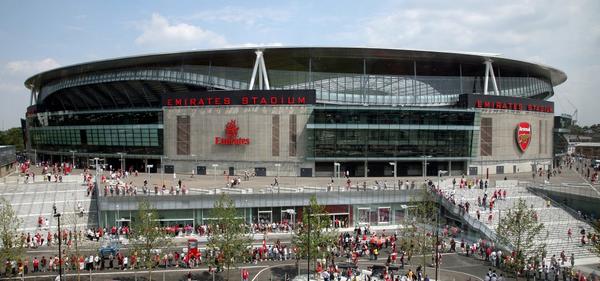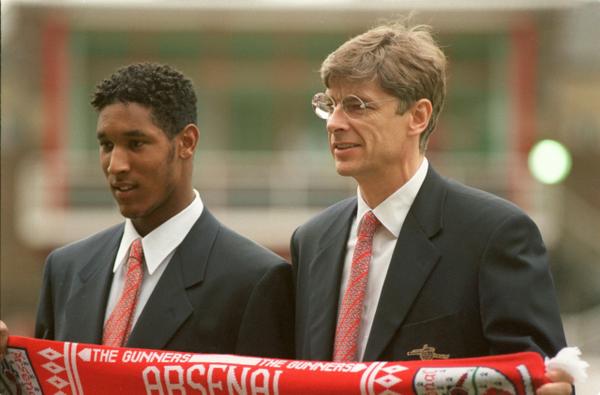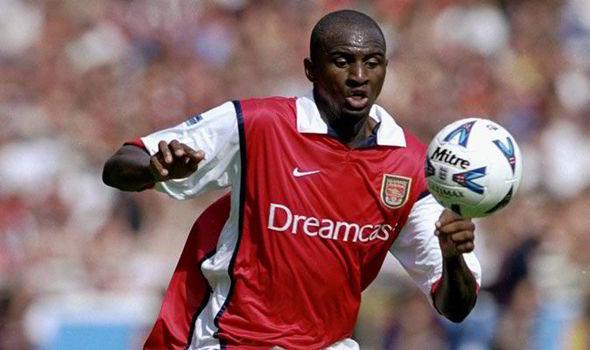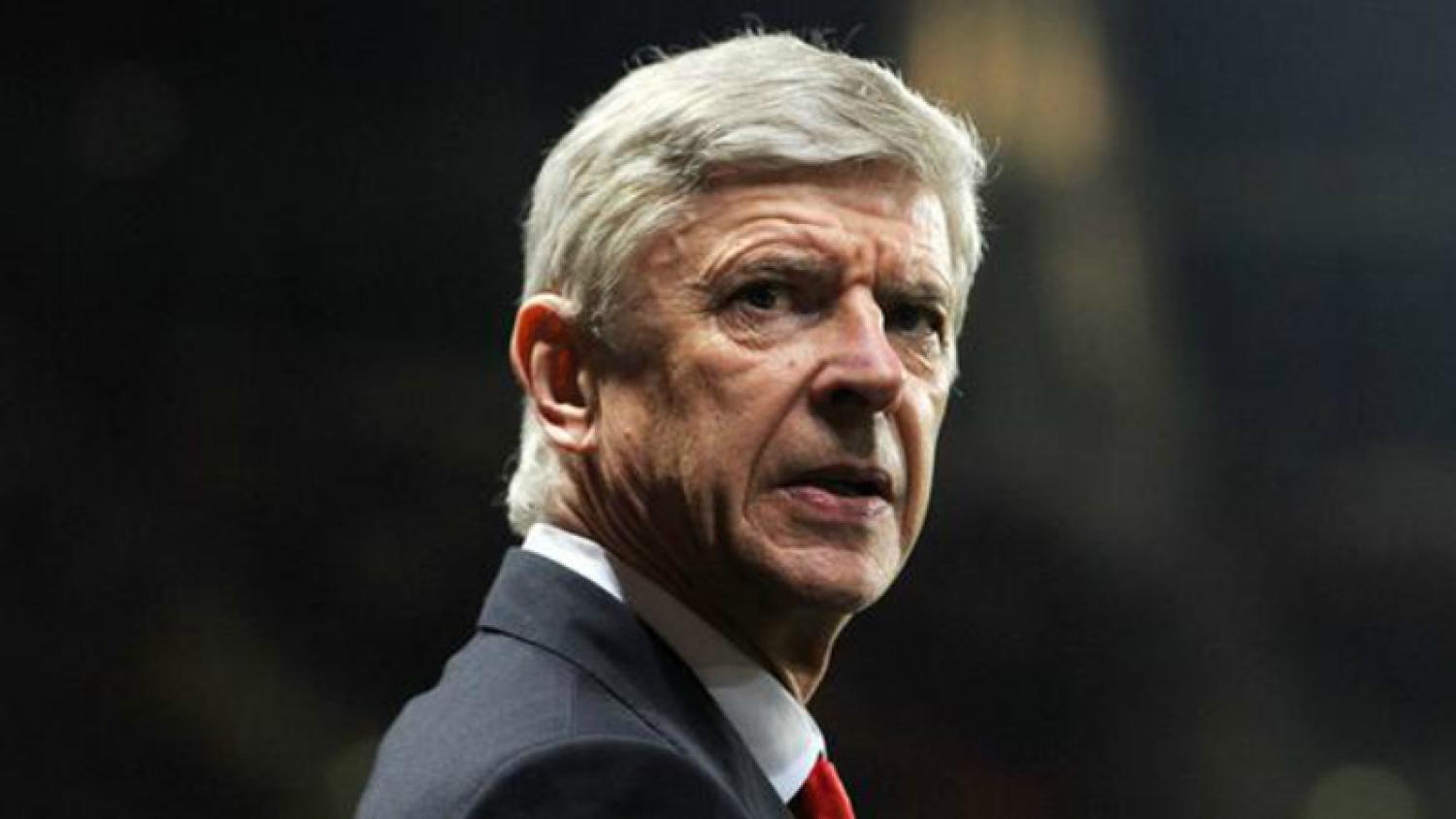Let's get one thing quite clear to begin with: this isn't a reactionary article to Arsenal's humiliating 3-1 Champions League loss to Monaco on Wednesday, supposedly the easiest tie in the last 16. No, the opinions set out below are based upon countless similar performances over the last decade of Arsene Wenger's tenure as manager. We don't deny for a second that Wenger is one of the finest managers to have graced the British Isles. After all, he’s won three Premier League titles and five FA Cups with Arsenal, as well as leading The Gunners through an entire Premier League season unbeaten (the first team to do so in over 100 years). Arsenal are still in the FA Cup, they may very well notch up yet another top four finish in the BPL and we dare say they'll give Everton a damn good thrashing on Sunday.
But even the most died-in-the-wool Wenger apologist can't deny that Arsenal haven’t come close to winning the league in nearly a decade. Their average points total over the last ten years is 14 off the pace; this season they trail Chelsea by 12. With The Emirates’ debt nearly paid off, the new Premier League television deal and FFP regulations cementing the monetary advantage of clubs with established strong revenues streams like Arsenal, the question must be asked: Is fourth place really still good enough? Is the last 16 of the Champions League really the high water mark of Gunners' European ambitions? If the answer to those questions is no, is Arsene Wenger, therefore, still the man to take The Gunners back to the top?
The18 contends that he isn't, for three very good reasons:
1. Money's Not The Issue
The construction of The Emirates, and the £260m loan used to pay for it, has long been cited as the all-encompassing reason for Arsenal’s relative decline since their last league title. At exactly the same time Chelsea and later Manchester City were spending hundreds of millions on transfer fees and wages, The Gunners were servicing £35m a year in interest payments. That's a handicap that would cripple any club's actions in the transfer market. But were Arsenal ever big spenders?

Photo @etukalfred | Twitter
In the first five years of Wenger’s reign - a period in which the club won two Premier League titles and two FA Cups - Manchester United’s net spend was 2.5 times higher than The Gunners’, pre-Abramovich Chelsea's was 3 times higher, and Leeds United – on a spending spree that eventually proved unsustainable – outspent the North Londoners by more than 4.5 times. Indeed, from the turn of the century to the year of their last league title, Arsenal were on average only the 11th highest net spenders in the league, and never higher than 8th. Their position actually goes up during the ensuing “debt wilderness years”.
So a lack of transfer spending isn't the fundamental issue at play, especially when you consider that Arsenal spent £42m on Mezut Ozil and £35m on Alexis Sanchez in the last two summer transfer windows and are still flat-lining.
But if debt isn't the explanation, what is?
2. A Diminishing Knowledge Gap
The Premier League that Arsene Wenger first inhabited back in the Autumn of 1996 was a wholly different place to the one which plays out on our HD screens today. Mid-90s Highbury wasn’t a well-oiled, PR-savvy and professionally run football club-cum-business. It was a drinking fraternity. Ex-Gunners like Paul Merson, Ray Parlour and Tony Adams didn’t retire to their Playstations after training, recovering from their exertions through rest, recuperation and a carefully balanced diet. No. They drank. And drank. And then drank some more.
Wenger stopped all of that. He banned alcohol from the players' lounge, introduced vitamin supplements and vegetables to players’ diets, made training sessions shorter yet sharper and encouraged – shock, horror – stretching. That all may sound pretty tame by today’s standards, but in the Premier League’s pre-millennial era it was revolutionary, and it gave Arsenal an edge over the competition. An edge that has since been eroded.

Photo @RemTheFoot | Twitter
Another knowledge gap that Wenger exploited was the transfer market. The Frenchman had – unsurprisingly – a considerably more detailed grasp of continental Europe’s talent pool than his Premier League opponents, all of whom – with the sole exception of Chelsea's recently appointed Ruud Gullit – were British when Wenger arrived on this Sceptred Isle. He duly proceeded to snap up Emmanuel Petite and a 20-year-old Patrick Vieira for £3.5m each, 18 months before France won the ’98 World Cup. He bought Thierry Henry – languishing on the wing at Juventus – for £10m and turned him into arguably the greatest striker to ever play in the Premier – or indeed any other – League. He signed 17-year-old Nicolas Anelka for a pittance from Paris St.-Germain, and sold him to Real Madrid 3 years later for £22m. Despite being consistently mid-table in terms of net transfer spending, Arsene Wenger knew where the bargains lay.
But, like dietary supplements and training methods, that knowledge gap has since evaporated. Globalization and technology make it very difficult to achieve a real and consistent edge in today’s transfer market. Where foreigners – both players and managers – were once a novelty, they’re now the norm, and Wenger no longer holds an advantage.
3. Tactical Dogmatism
Which leaves Arsenal supporters with little more than a tactical dogmatist seemingly incapable of pragmatic thought. As Sam Allardyce said late last year: “There are two types of coach. There are coaches like me who weigh up the opposition and ask the team to adjust. Fergie was similar. Jose is similar. Then there’s Arsène, who won’t adjust...That’s why you can beat them."
Wenger, for whatever reason, became tactically stubborn after The Invincibles season. Ever since, he's wanted Arsenal to attack-attack-attack. And that "philosophy" has impacted his transfer acumen: he's almost exclusively spent money on small, technically brilliant yet physically inept attacking midfielders and forwards, to the detriment of Arsenal's back four and any semblance of tenacity in midfield. Aaron Ramsey, Alex Oxlade-Chamberlain, Mezut Ozil, Santi Cazorla, Tomas Rosicky… we won't labor the point.

Photo @ONEWorldSports | Twitter
Why Wenger regressed into this tactical trench is almost besides the point: the fact is he's shown very little inclination of changing his tune for the better part of ten years. Not since Vieira left in 2005 has Wenger consistently played with two holding midfielders. Indeed, these days he barely plays with one. We're not castigating him for failing to replace Vieira - that's a near-impossible task. But to not even try is a dereliction of duty, and his lack of pragmatism ever since has undeniably cost Arsenal points and silverware.
Should He Stay, Or Go?
The sign of a truly great manager is the ability to upset the natural order. Sir Alex Ferguson did it at Aberdeen and then United; Jose Mourinho did it with Porto; Rafa Benitez did it with Valencia and Diego Simeone is doing it with Atletico Madrid. With his once unique knowledge of training methods, diet and the European transfer market, Arsene Wenger did it for the first half of his reign at Arsenal. With those advantages now gone, and mis-placed philosophy and stubbornness in its stead, he’s pretty much delivered in line with the financial pecking order.
Arsene Wenger isn’t the manager he once was, and that has little to do with debt burdens or oil-rich sheikhs. If Arsenal continue to be content with Champions League qualification alongside the odd cup run, then they should stay loyal to Wenger. If they want to upset the apple cart, it may be time to roll the managerial dice, just like they did 19 years ago.



